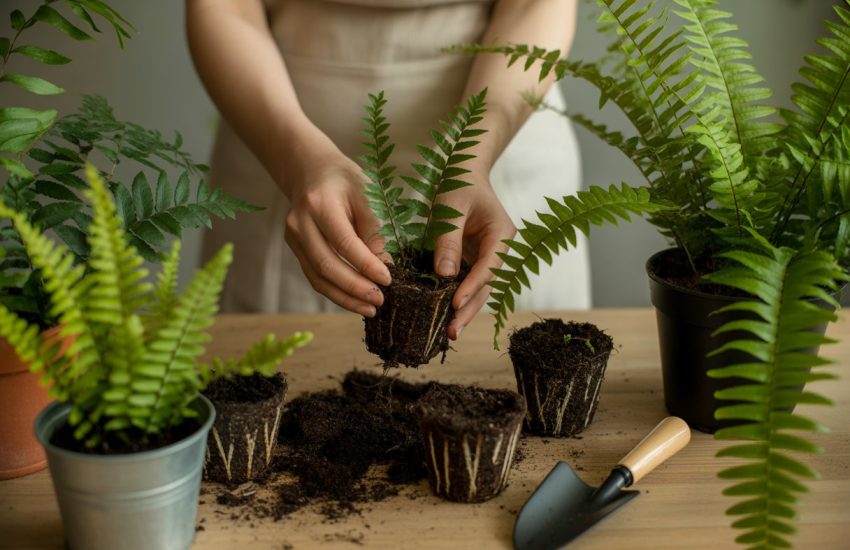10 Best Medicinal Plants And Their Uses
It’s crucial to remember that before ingesting or using anything new for your body, you should always confirm with your doctor. If you decide to cultivate some of these plants, follow the plant’s care instructions and avoid applying pesticides or other dangerous chemicals to your plants.
We’ve compiled a list of our favorite medicinal plants, their essential health advantages, and how to use them to help pick which plants are ideal for you.
The Best Medical Plants
1. Basil
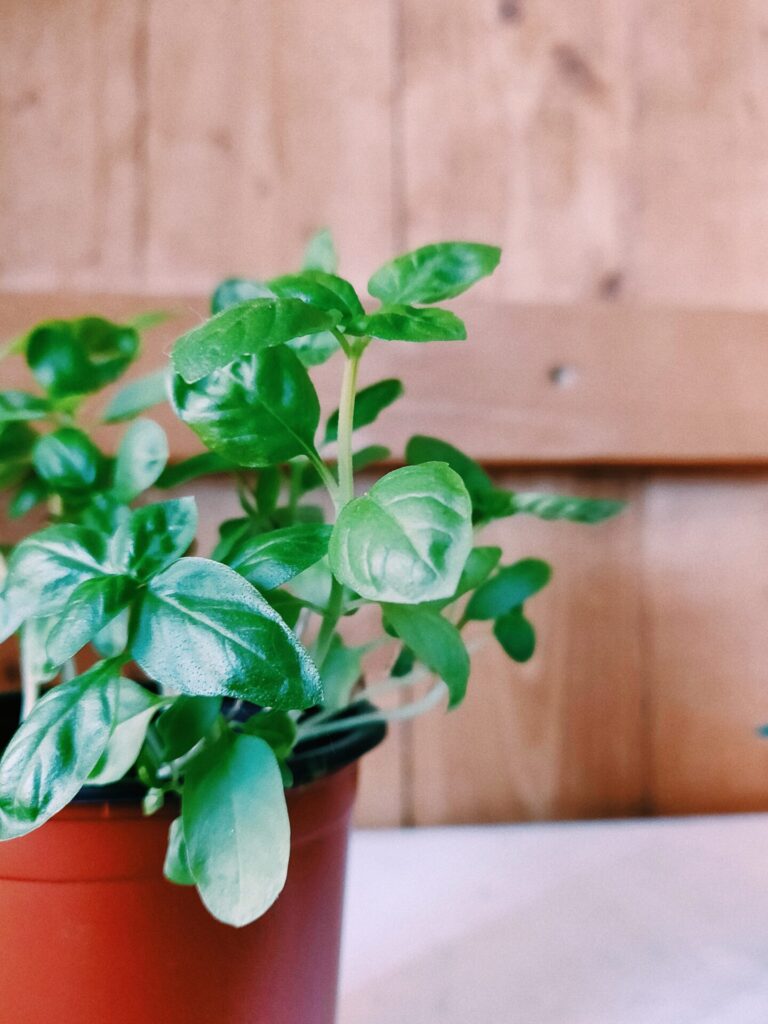
Basil is a common herb that adds flavor to pasta, salads, and many other dishes. Basil helps treat common illnesses since it contains vitamins and minerals, including iron and vitamin K. For instance, basil contains manganese, which aids in your body’s metabolization of many substances. Tulsi, often known as holy basil, is a particular basil species from India. It is a sacred plant used to make teas, ointments, and more to treat diabetes and other illnesses and conditions. Compared to regular basil, this species has a much stronger flavor.
- Health advantages of basil:
- Lessens tension
- Powerful antimicrobial effects
- Rich in antioxidants
- Protects against the inevitable negative consequences of aging
- Reduces edema and inflammation
- Strengthens the liver and bones
- Increases immunity
- Speeds up metabolism
- Betters digestion
Typical uses
- Sprinkle on food as a garnish
- Include as a smoothie ingredient
2. Catnip
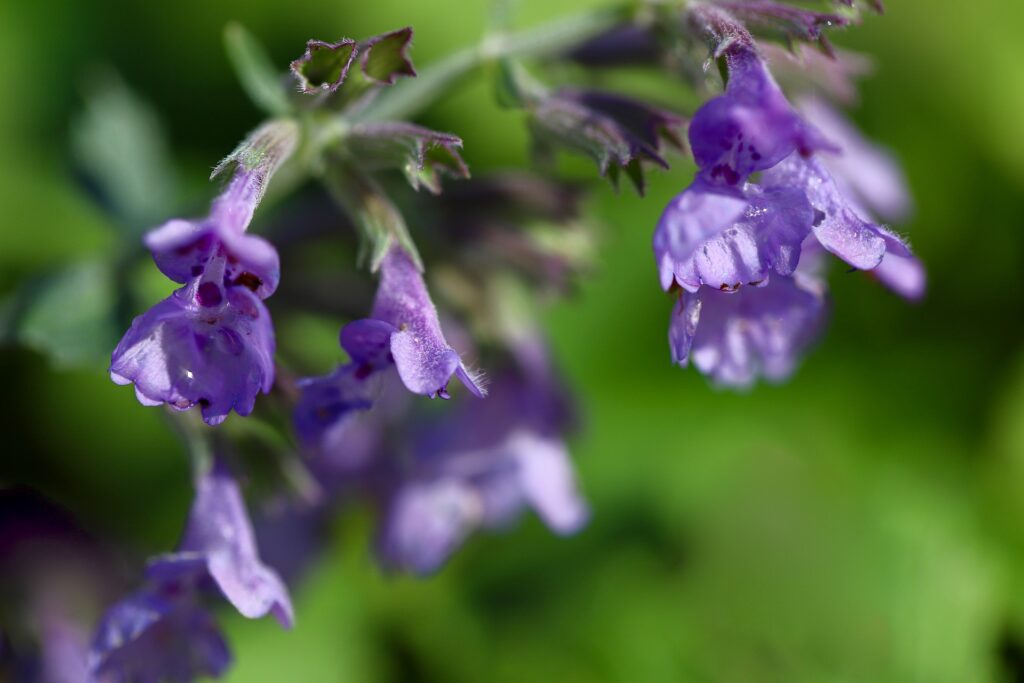
Cats enjoy the catnip plant. Most cats are drawn to the plant and will roll around because of how stimulating the perfume is. If cats use these medicinal plants, they also become sedated. On the other hand, it is typically used on people as a stress reliever, sleep aid, and treatment for skin problems. Nepetalactone, thymol, and other compounds in this plant give it the majority of its health advantages, making it beneficial to you and your four-legged friend.
- Benefits to the health of catnip
- Repels insects and soothes itch from bug bites
- Calms agitation, worry, and tension
- Gastrointestinal ache is eased
- Speeds up the healing process after colds and fevers
Typical usage
- Brew tea from the leaves.
- Burn some dried leaves to release some aroma
- Applying topically essential oils or leaves
3. Cayenne Pepper
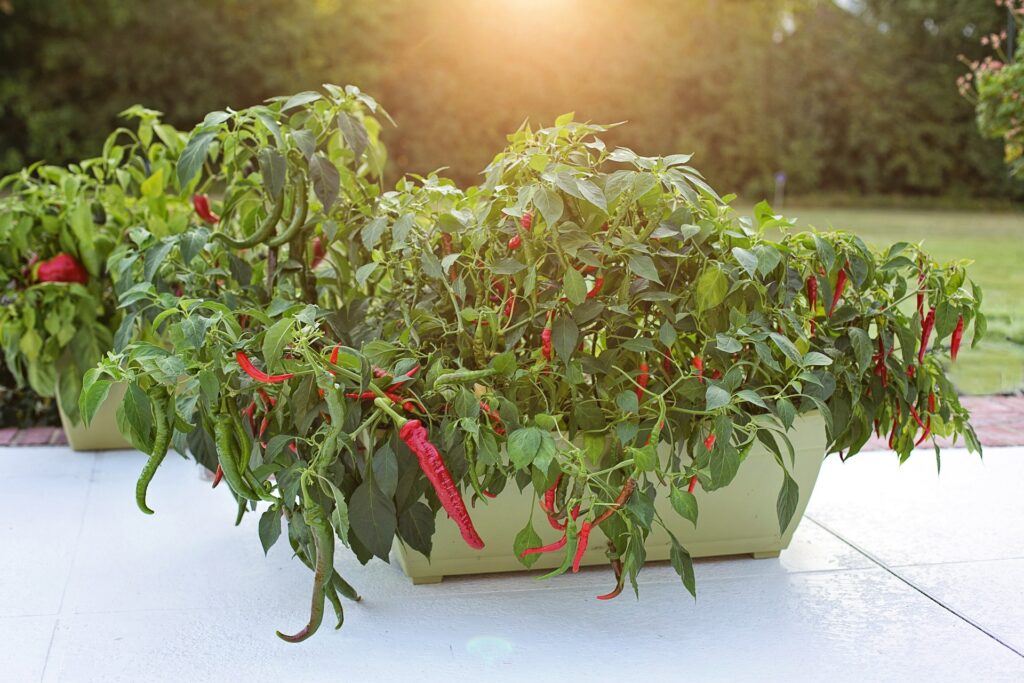
Cayenne pepper, a common detoxifier for many people, gives any dish or beverage a spicy kick. The substance that gives cayenne its hot flavor and some of its health advantages are called capsaicin. Lower cholesterol and pain reduction are a couple of these advantages.
Benefits of cayenne pepper for health
- Cleanses the body
- Speeds up metabolism
- It helps with digestion and calms an upset stomach
- Circulation is enhanced
- Alleviates pain
Typical usage
- Add to dressings, spice blends, sauces, and other dishes.
- Could you take it as a pill?
Due to its high antioxidant content, chamomile is a fantastic herb for treating many illnesses. Making chamomile tea at home by brewing dried chamomile flowers is a typical way to consume chamomile (ensure the flowers are dehydrated). The chamomile tea you sip before bed can help you unwind and get a better night’s sleep.
4. Chamomile
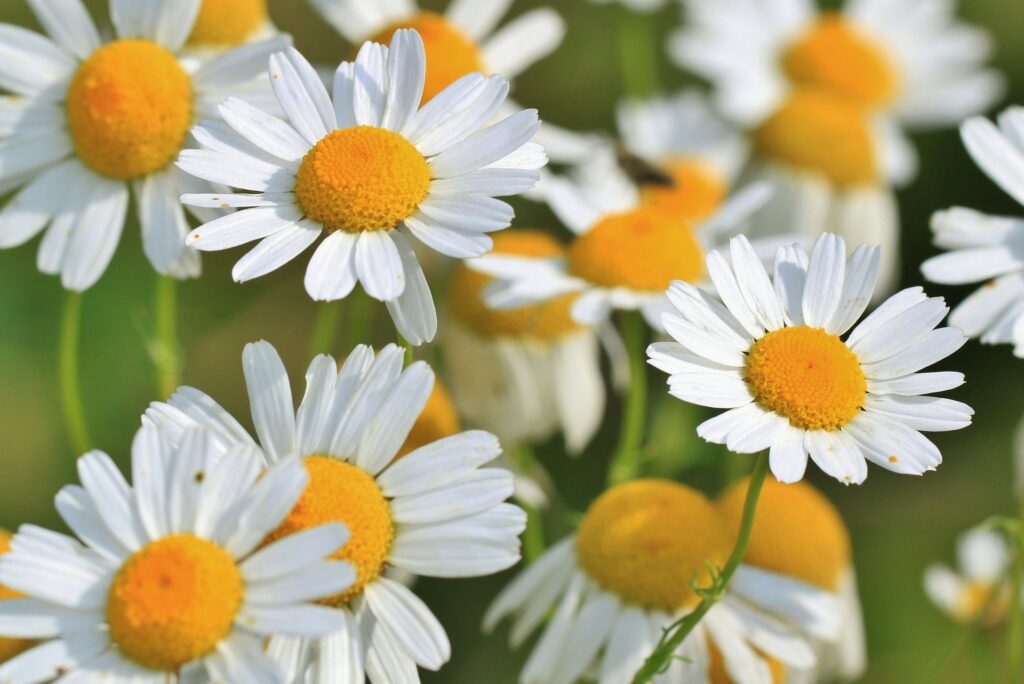
- Benefits to the health of chamomile
- Enhances general skin health
- Alleviates discomfort
- Promotes rest
- Reduces swelling and inflammation
- Abundant in antioxidants
- Reduces clogging
Typical usage
- Brew a tea with dried flowers.
- Essential oil inhaled
- Topically apply essential oils
5. Dandelion
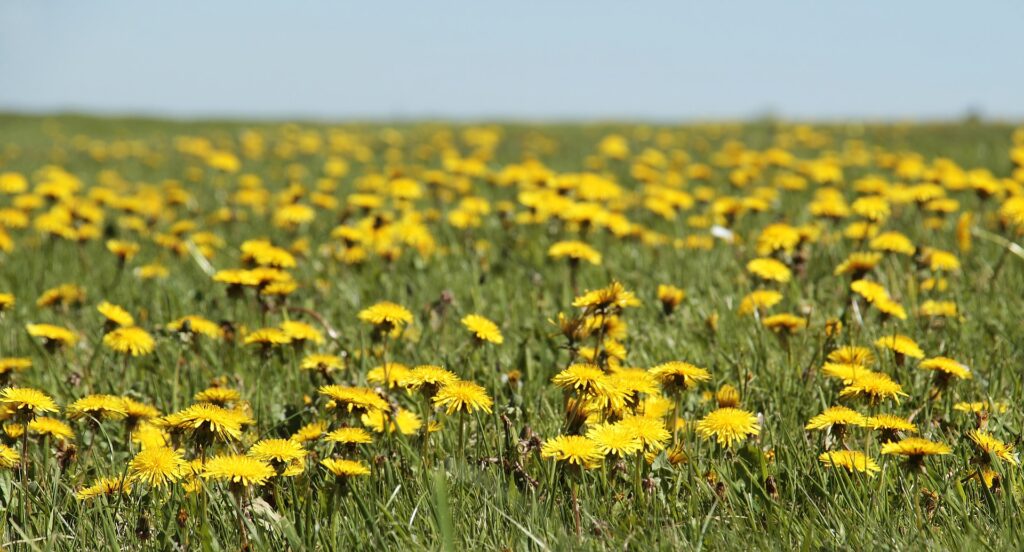
Before removing those annoying taraxacum dandelions from your front yard, you should consider them again! In addition to being tasty, dandelion flowers are also loaded with health advantages. These healing plants are rich in nutrients that are good for you, including vitamin K, vitamin C, iron, calcium, and other nutrients. These vitamins and minerals support solid bones and liver health. A dandelion has many uses and benefits for your health. For instance, dandelion sap is excellent for your skin, the leaves can be used as a garnish, and the roots are frequently used to make tea.
Health advantages of dandelion:
- Liver detoxes and promotes general liver health
- Skin infection treatment
- Promotes general bone health
- It helps treat and avoid urinary infections
Typical usage
- Tea from roots to drink
- Use leaves to decorate dishes.
- Take it as a pill.
6. Echinacea
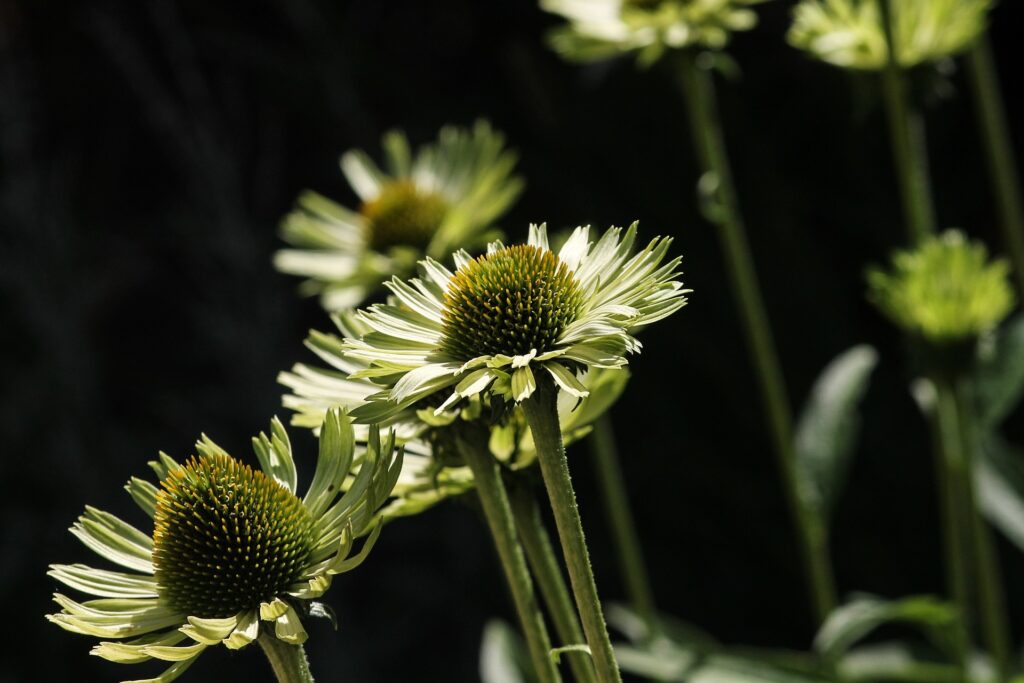
Purple coneflower is another name for echinacea, scientifically known as echinacea purpura. Another flower is typically brewed into a tea to help with various symptom relief and immune system boosting. The most frequent usage of this well-known plant is to hasten the healing process after a cold. It’s crucial to remember that echinacea, when taken frequently in high dosages, can have adverse effects like nausea and dizziness.
Health benefits of echinacea
- Treats urinary tract infections and aids in their prevention.
- Improves immune system
- Cures upper respiratory problems
- Reduces infection
- Reduces the severity of cold symptoms
Typical uses
- Make tea with roots, leaves, and flowers.
- Take it as a pill
7. Garlic
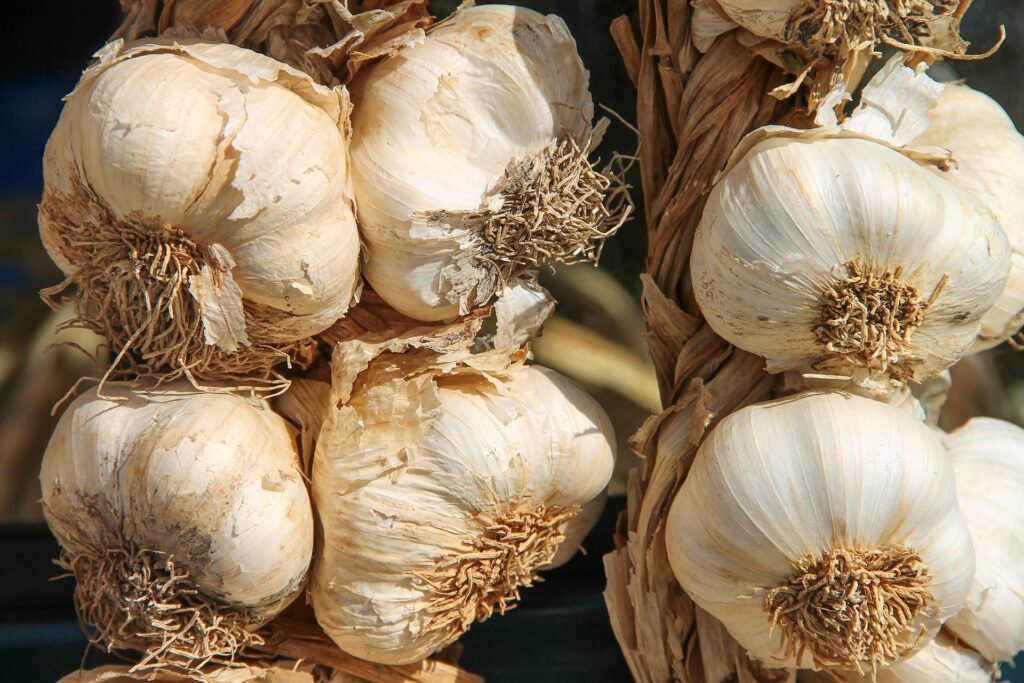
Garlic helps ward off undesirable infections and vampires! This wonder plant helps with cholesterol management, infection prevention, and many other things. Regular consumption of garlic is beneficial for your general health and is simple to add to various cuisines. For the most health benefits, try consuming raw garlic since it has the highest potency.
health advantages of garlic
- Reduces the risk of heart disease
- Lowers blood pressure and cholesterol
- Prevents Alzheimer’s disease, dementia, and other similar degenerative diseases
- The health of the digestive system
Typical uses
- Use in foods as an ingredient or garnish.
- Consume raw
8. Lavender
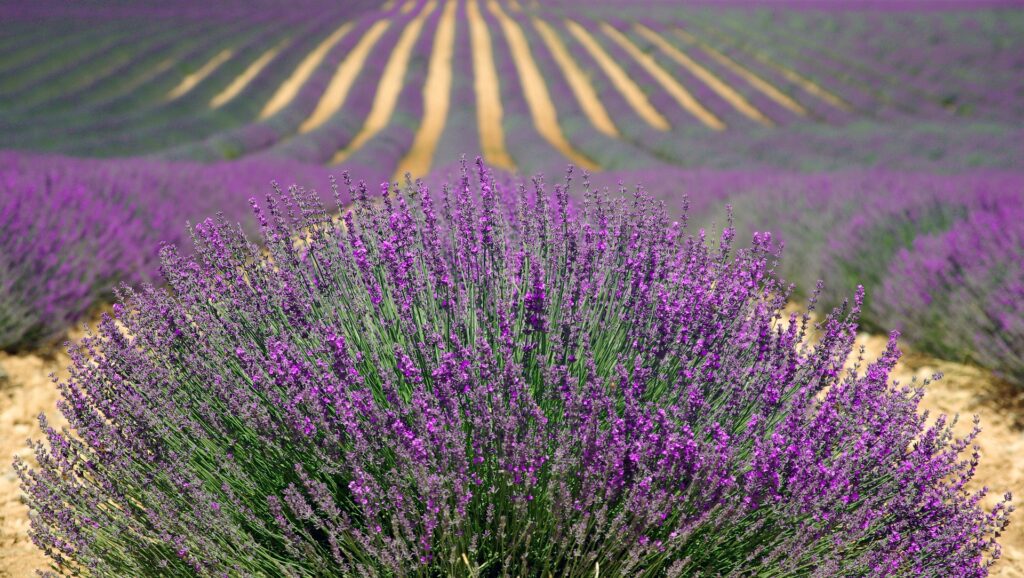
The herb lavender is well known for its calming properties and calming smell. Another beverage you can make to relax after a long day and get a good night’s sleep is lavender tea. Common uses for lavender oil include aromatherapy, hair treatments, and massages.
Health benefits of lavender
- Relieves stress and eases tension
- Alleviates migraines and headaches
- Promotes rest
- Promotes healthy skin and hai
- Combats acne
- Alleviates discomfort
- Treats respiratory problems
Typical usage
- Make a flower tea.
- Use a diffuser with essential oils.
- Topically apply essential oils.
9. Lemon balm
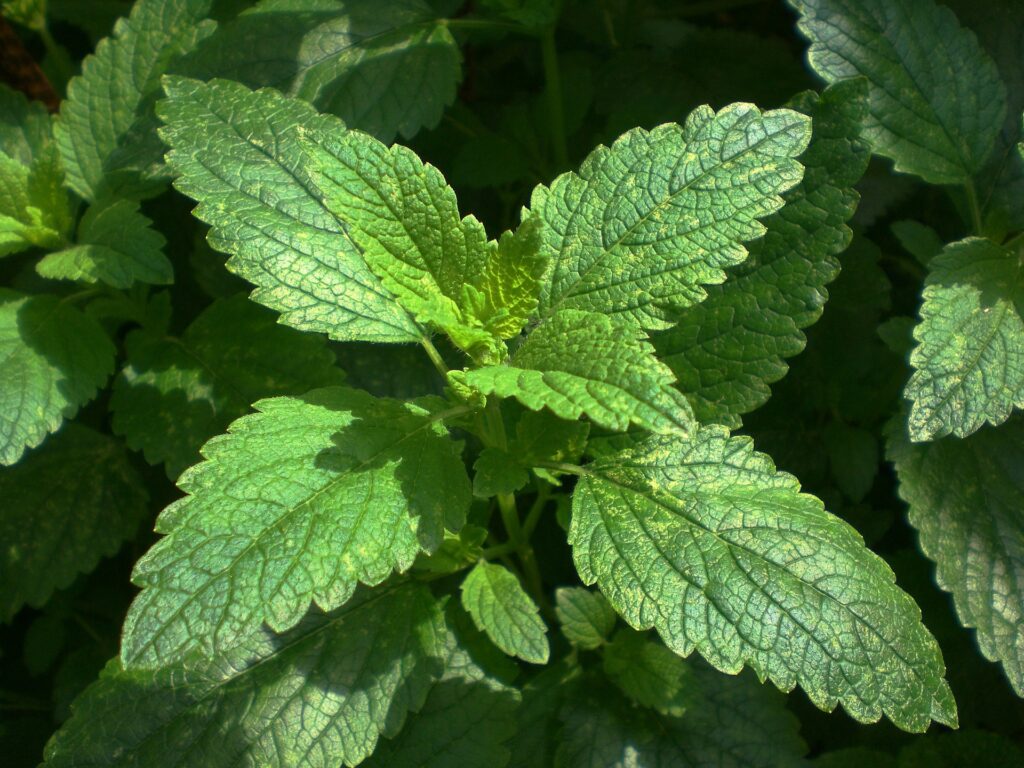
Long used as a medicine, lemon balm can help you relax and keep bugs away. Minimal stress is suitable for a healthy, well-functioning body because extreme stress can complicate various bodily processes. This citrusy herb is delightful and versatile, working well in ice cream, drinks, and other meals. Lemon balm tea is frequently consumed to ease anxiety and stress and quiet restless children.
Lemon balm advantages
- Calms agitation, worry, and tension
- Brings down inflammation
- Cold sores are treated
- Relief from menstrual cramps
Typical usage
- Brew tea from the leaves.
- Dishes and desserts with garnishes
- Topically apply tea or essential oils.
10. Goldenrod
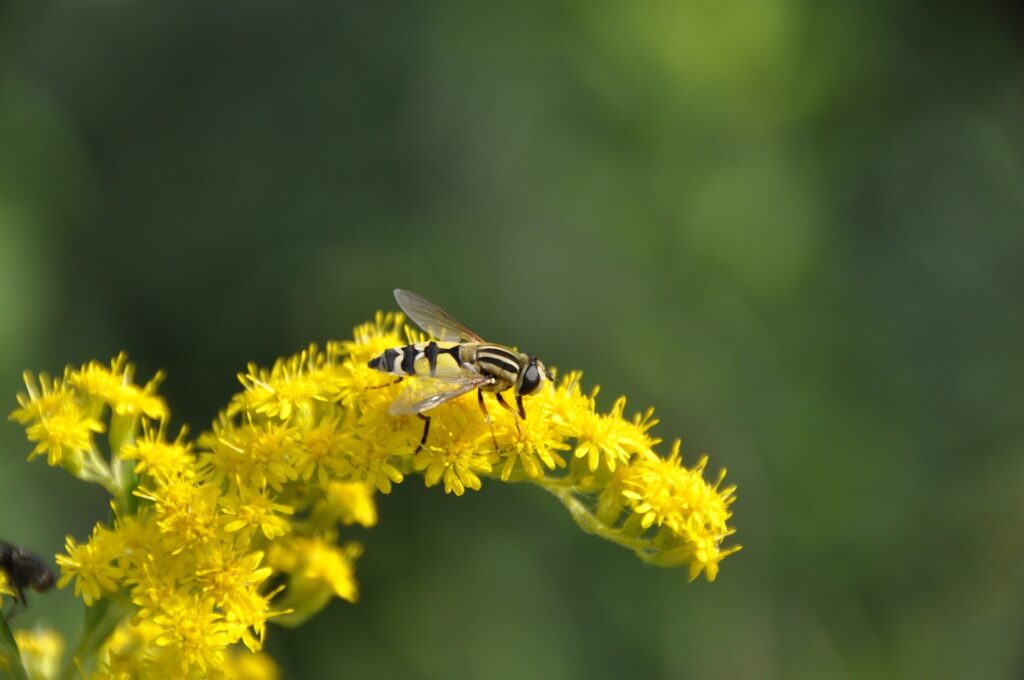
Many people use aromatic plants known as marigolds (tagetes) to enhance the general health of their skin. These colorful flowers are excellent to maintain indoors because they contain antioxidants and other beneficial components. These plants assist keep insects away in addition to maintaining the wellness of your body.
Health benefits of marigolds
- Cures skin conditions and soothes the skin
- Brings down inflammation
- Ear pain and infection are treated
Typical uses
- Brew a tea with dried flowers.
- Apply cream or an essential oil topically.
- Sprinkle on food as a garnish
Why Use Medicinal Plants
Because these medical plant therapies are in tune with nature, there are no adverse effects when using natural medications. Bringing home medicinal plants doesn’t require a significant financial commitment. These plants are highly affordable when compared to a box of pharmaceutical medications. Any age group can consume the leaves, bark, seeds, or any other part of the medicinal plants.
Sustainable choices include medicinal plants and herbal remedies. Many living things, like scorpions and horseshoe crabs, are used in most modern pharmaceuticals. Therefore, employing medicinal herbs is a sustainable option. Cooking using medicinal plants and herbs keeps its benefits for the body. In typical Indian food, coriander or ginger are frequently utilized and are very healthful.
When To Harvest For Medicinal Use
Depending on what portion of the plant is used for each treatment, there are different ways to harvest your medicinal herbs and plants.
You should pick the leaves of various plants before the plant flowering. Doing this allows you to harvest the leaves just as their medicinal value is peaking. You should choose the flower from some plants, as it is just starting to open. Other plants aren’t harvested until after the plant has died and the root has been used.
Conclusion
Many plants have unique qualities that can benefit our health, such as lavender’s calming scent or chamomile’s ability to prevent allergies, and a variety of them can be cultivated in your backyard garden.
These natural treatments may be cultivated anywhere, as long as they receive enough light and water, whether you have a small balcony area or a garden patch.
FAQ
Lavender: Many different products, including bath salts, candles, soaps, mists, and pillow sprays, contain lavender. It is well-known for helping people who have trouble falling asleep, and its aroma helps promote deep sleep by lowering blood pressure and heart rate. Poor quality of sleep? Why not use lavender to cover your pillow at night? You can cut some from a shrub or purchase some nearby.
Holy Basil: Holy basil includes antibacterial qualities that keep bacteria and germs out of your mouth and is excellent for fighting coughs and colds. This powerful cultivar, which also relieves joint pain and anxiety, is sacred in Hinduism.
Feverfew: This herbal remedy has been used for centuries to treat illnesses like headaches and migraines. It is frequently dried and used in medicine under “medieval aspirin.”

